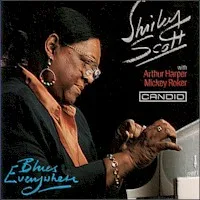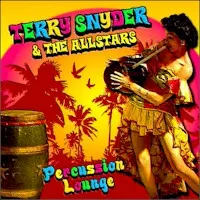Bitrate: MP3@320K/s
Time: 72:43
Size: 166.5 MB
Styles: Easy Listening, Swing, Big band
Year: 2000
Art: Front
[3:07] 1. Nat King Cole Trio - Sweet Lorraine
[2:41] 2. Martha Tilton - Does Everyone Know About This
[3:00] 3. Coleman Hawkins - Stuffy
[3:00] 4. Benny Carter - Poinciana
[2:56] 5. Ella Mae Morse - Buzz Me
[2:36] 6. Stan Kenton & His Orchestra - Artistry Jumps
[3:06] 7. Cootie Williams And His Orchestra - Juice Head Baby
[2:36] 8. Alvino Rey - Cement Mixer (Put-Ti, Put-Ti)
[2:43] 9. Johnny Mercer - My Sugar Is So Refined
[2:40] 10. Geechie Smith & His Orchestra - T-Town Jump
[2:53] 11. Nellie Lutcher - Fine Brown Frame
[3:01] 12. Sam Donahue & His Orchestra - Robbin's Nest
[2:21] 13. Crown Prince Waterford - Move Your Hand, Baby
[3:14] 14. T-Bone Walker - I Got A Break Baby
[2:42] 15. Julia Lee And Her Boyfriends - King Size Papa
[3:04] 16. Benny Goodman - On A Slow Boat To China
[2:28] 17. Stan Kenton & His Orchestra - How High The Moon
[3:06] 18. Peggy Lee - Don't Smoke In Bed
[2:43] 19. Charlie Barnet - Be-Bop Spoken Here
[3:06] 20. Johnny Mercer - One For My Baby (And One More For The Road)
[3:08] 21. Dizzy Gillespie - You Stole My Wife-You Horse Thief
[3:07] 22. Kay Starr - Evenin'
[3:15] 23. Billy May - Lean, Baby
[3:01] 24. The Four Freshmen - Tuxedo Junction
[2:56] 25. Duke Ellington - Satin Doll
The swing era and pre-bop jazz age of the '40s was a zenith for Capitol Records, which was jumpin' not only on radios and jukeboxes nationwide, but at cash registers as well. This third volume in the venerable label's From the Vaults series is an indispensable guide to Capitol's ever-increasing talent roster, highlighting this unique period in American popular music. Aptly subtitled Capitol Jumps, the album does considerably more, ranging from the erudite cool of the Nat "King" Cole Trio on "Sweet Loraine" to decidedly more "alternative" bop classics such as Dizzy Gillespie's "You Stole My Wife You Horse Thief." On the lighter side are remnants of big-band orchestras led by Benny Goodman ("On a Slow Boat to China") and Johnny Mercer ("One More for My Baby (And One More for the Road)"). The passing of the pop music baton from big band to jazz is reflected in this volume most notably by the Four Freshmen's brilliant interpretation of "Tuxedo Junction" and the intoxicating one-two punch of Ella Mae Morse's "Buzz Me" and "Juice Head Baby by Cootie Williams & His Orchestra, featuring vocalist Eddie "Cleanhead" Vinson. One trend continuing for Capitol was that of hitmaker. Among the seven Top 40 hits on Capitol From the Vaults, Vol. 3 are Alvino Rey's ultra-danceable "Cement Mixer (Put-Ti, Put-Ti)," Benny Carter & His Orchestra with "Poinciana," and the Johnny Mercer conducted orchestra on "My Sugar Is So Refined." This all-star recording also features labelmates the Pied Pipers, accompanied by Paul Weston & His Orchestra. As with other volumes in this collection, the sonic transfer is superior, making it an essential component to any comprehensive overview of American popular music. The 12-page liner notes booklet contains lots of memorabilia wrapped around another installment of Billy Vera's informative essays. ~Lindsay Planer
Capitol Records From The Vaults: Capitol Jumps




















